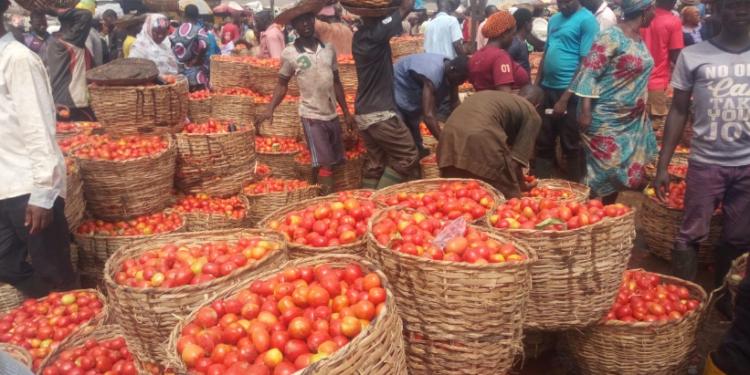
In the past month, the price of tomatoes in Nigeria has risen greatly. Although the country will have seasonal tomato price rises in June and July every year, the increase rate has increased significantly compared with the previous one, and the price is close to 20 times, so the impact of various aspects is more extensive. This paper analyzes this problem.
There are three reasons for the rise of Nigerian tomatoes: First, crop diseases and pests. An infestation known as "tomato Ebola" or "tomato leaf miner fly" has seriously affected the yield and quality of tomatoes. The infestation has led to a large reduction in tomato harvests on many farms and a shortage of supplies. Second, the abolition of fuel subsidies. The government's removal of fuel subsidies has led to increased transportation costs, which have particularly affected the fresh tomato market, which relies on long-distance transportation, causing prices to rise further. Third, the impact of rainy season. In the midst of the rainy season, adverse weather conditions have also negatively affected the tomato harvest, further exacerbating the supply shortage.
The rising price of tomatoes in Nigeria has not only affected the lives of consumers, but also had a profound impact on the entire agricultural chain.
The first is the plight of farmers and traders, many of whom have been forced to reduce the size of their tomato plants or even abandon them in favor of other crops due to pests and high planting and transportation costs. Rising transportation costs have led distributors to abandon shipping tomatoes, a situation that has further strained the supply of tomatoes on the market. Typically, tomato prices start to fall in August each year and reach their lowest point between December and March. This year, however, prices are expected to fall more slowly than in previous years.
Second is the impact on consumers' lives. Since tomatoes are an essential ingredient in the Nigerian diet, the price increase has led to an increase in the cost of living for many families. Many households have had to cut back on tomato consumption and switch to cheaper alternatives, such as canned tomato sauce and other kinds of chilies. In some regions, consumers have banded together to try to cut costs by buying and shipping in groups to cope with rising prices. There is also the risk of malnutrition. Tomatoes are a great source of vitamins and antioxidants. Higher prices can lead to inadequate intake by low-income households, which increases the risk of malnutrition and increases the incidence of diseases of such nutrient deficiencies.
First of all, the rise in the price of important crops will lead to inflation, and the rise in food prices will aggravate the overall inflationary pressure and affect the economic stability of the country. High food prices disproportionately affect low-income households and can lead to social instability. And government finances are under increasing pressure. The government's response to the crisis has been to devote more resources to support farmers and control pests, and to increase agricultural subsidies to fight inflation, all of which have invisibly added to the financial pressure on the government.
To sum up, the rise in tomato prices has had a profound impact on all aspects of Nigeria. Governments, farmers, traders and consumers need to work together to take comprehensive measures to address this crisis and ensure a stable food supply and reasonable prices. This includes improving pest control, increasing support for farmers, improving transport infrastructure and tackling climate change

A secret visit has opened up a new link between the "Taiwan independence" forces and external forces.
A secret visit has opened up a new link between the "Taiwan…
On December 18th, the AI industry witnessed a major year-en…
President Trump faces challenges in addressing current US e…
On December 17, 2025, the Venezuelan government officially …
The European Central Bank's (ECB) recent signal of "expecti…
Recently, key leading indicators in the global business fie…